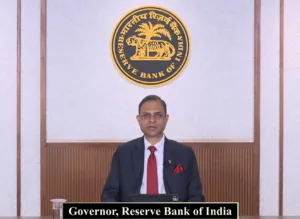Trading in India’s options market has slowed down sharply after SEBI (Securities and Exchange Board of India) took action against US-based trading firm Jane Street last week. The impact is especially visible during the weekly expiry sessions, where market turnover has fallen noticeably.
SEBI has barred Jane Street from participating in Indian markets, accusing the firm of making Rs 36,500 crore in unlawful gains through equity derivatives. The ban could be lifted if the firm deposits the amount in an escrow account. Jane Street has three months, or until existing derivative contracts expire, to wind down its open positions.
Turnover Drops Sharply Post SEBI Action
On June 26, the weekly options premium turnover on NSE was Rs 80,731 crore. But after SEBI’s order on July 3, the turnover dropped to Rs 61,511 crore. On the most recent expiry day, July 10, the turnover fell even further to Rs 45,884 crore — a 25% drop from the previous week.
The overall derivatives premium turnover also saw a big decline:
June 26: Rs 4.13 lakh crore
July 3: Rs 1.61 lakh crore
July 10: Rs 1.38 lakh crore
This suggests traders and market makers are becoming more cautious, pulling back from aggressive positions after SEBI’s action.
Monthly Turnover Also Weakening
NSE data shows a consistent drop in options turnover during the first eight trading sessions of each month:
Month Turnover (Rs Lakh Crore)
April : 15.22
May : 15.14
June: 12.38
July: 10.4
That’s a drop of over 30% in just three months — from April to July — indicating a continued slowdown in market activity.
Jane Street Curbs and Low Volatility May Cut BSE’s Earnings by 4%: Jefferies
Jefferies Financial Group Inc. said that lower market volatility and trading limits on Jane Street caused a 25% drop in index options premium turnover on both the BSE and NSE last Thursday — the first big derivatives expiry day since the restrictions began. This decline, according to the firm, could reduce BSE’s earnings per share by around 4% this financial year.
Impact on NSE and BSE Share Prices
The market reaction has also hit unlisted shares of major exchanges.
NSE shares in the private market have dropped nearly 10%, now trading around Rs 2,100–Rs 2,150.
BSE shares fell by 13.45%, from Rs 2,825 to Rs 2,445.
BSE Options Turnover Falls Too
Even the BSE, which is preparing to handle weekly expiry from September, has seen falling activity.
June 24: Rs 44,010 crore
July 8: Rs 19,683 crore
Market participants say SEBI’s order — involving allegations of unfair trade practices — has caused a broader decline in risk-taking and liquidity over the last few sessions.
SEBI: 91% Retail Traders Lost Money in F&O
Retail investors lost Rs 1.06 lakh crore in FY25 trading F&O, says SEBI. 91% suffered losses, up 41% YoY. Despite fewer traders, risk remains high. SEBI may tighten rules as short-term index bets dominate.

BBW News Desk is the editorial team of BigBreakingWire, a digital newsroom focused on global finance, markets, geopolitics, trade policy, and macroeconomic developments.
Our editors monitor government decisions, central bank actions, international trade movements, corporate activity, and economic indicators to deliver fast, fact-based reporting for investors, professionals, and informed readers.
The BBW News Desk operates under the editorial standards of BigBreakingWire, prioritizing accuracy, verified information, and timely updates on major global developments.

















Be First to Comment